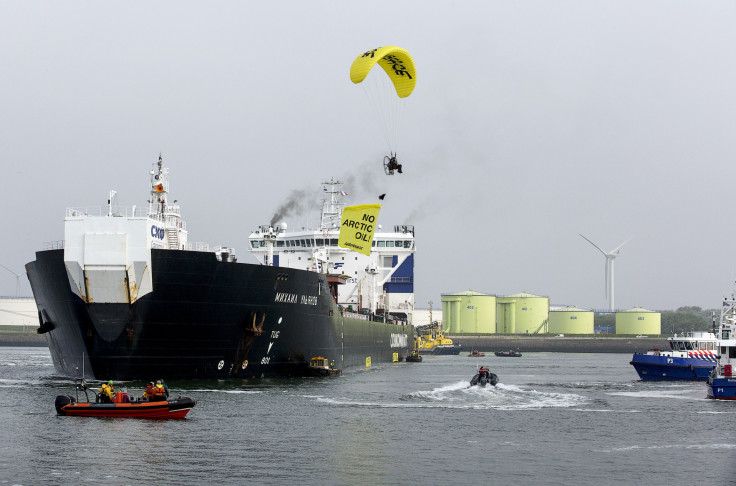Exxon Mobil Arctic Drilling Operations Off Siberia On Track Despite New Russia Sanctions, Company Says

Exxon Mobil Corp. (NYSE:XOM) brushed aside concerns this week that new U.S. and European sanctions against Russia could hinder its drilling operations in Arctic waters near Siberia. In its second-quarter earnings report on Thursday, the energy giant said its massive offshore operation in the icy Kara Sea is expected to start producing oil late this year.
The Western sanctions, announced earlier this week, target Russia’s energy, financial and military sectors in an effort to curb President Vladimir Putin’s support for pro-Russian separatists in Ukraine. The measures include an export ban on advanced oil technologies used to tap unconventional deposits like deep-water and Arctic fields and onshore shale formations.
Energy experts say the penalties could hinder Moscow’s attempts to drill in the Arctic. Russia's OAO Rosneft – Exxon’s partner in the offshore venture – has also been targeted in separate U.S. sanctions, including a limit on its long-term borrowing and restrictions on Chairman Igor Sechin.
David Rosenthal, Exxon’s vice president of investor relations, wouldn’t say whether the company is still planning to start drilling its first well in the Kara Sea next month. “Until we have a chance to look at the sanctions, read them, assess them, evaluate them, it just wouldn’t be appropriate to comment,” he said during a conference call.
But in Irving, Texas-based Exxon’s published materials, the company said its Berkut platform in the sea’s Arkutun-Dagi field is slated to add up to 90,000 barrels of oil per day to current production volumes by the end of 2014. When complete, the platform will be the largest such offshore oil and gas operation in Russia, according to the company. Exxon and Rosneft's Kara Sea operations were the center of Greenpeace protests against Arctic drilling last year, a tussle that got 30 activists arrested.
The Arctic mission is key to the company’s broader strategy to reverse declining output. Exxon’s shares fell on Thursday after the company reported that its oil and natural gas output fell 5.7 percent in the second quarter of 2014, to the equivalent of 3.84 million barrels a day.
© Copyright IBTimes 2025. All rights reserved.





















